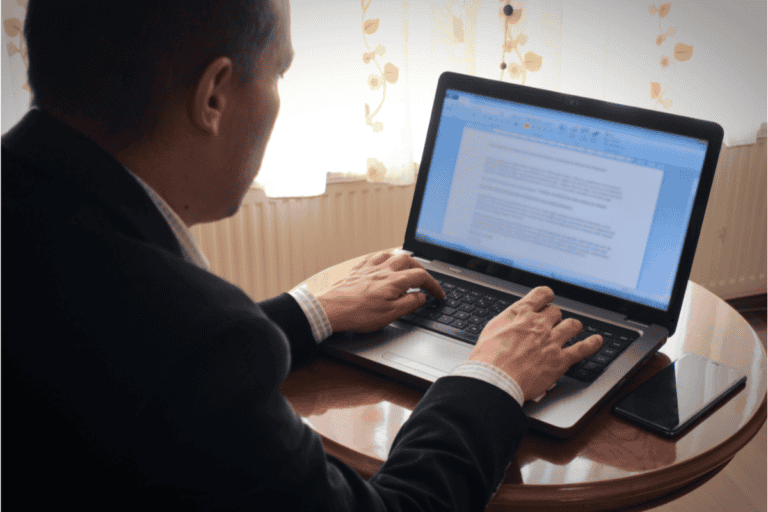Tips to Study for a College Exam
When preparing for a college exam, structuring your study approach is crucial. However, there’s more to it than just scheduling study times and reviewing notes. By incorporating active study techniques and engaging in group study sessions, you can deepen your understanding and gain valuable insights. But how can you ensure these strategies work effectively for you? Let’s explore some practical tips that can elevate your exam preparation to the next level.
Setting up a Study Schedule
To effectively prepare for your college exam, begin by creating a detailed study schedule that outlines specific study times and topics to cover. Start by considering your daily commitments and setting aside dedicated blocks of time for studying.
Break down each subject into smaller topics or chapters to cover during these study sessions. Prioritize the subjects or topics that you find most challenging to ensure you dedicate enough time to them. Be realistic with your schedule, allowing for short breaks to rest and recharge.
Utilizing Active Study Techniques
Consider incorporating active study techniques into your preparation to enhance your understanding and retention of the material. Instead of passively reading through notes, try techniques like summarizing key points in your own words, teaching concepts to someone else, or creating flashcards for quick review. Actively engaging with the material can help reinforce your learning and make it easier to recall during the exam.
Another effective method is to practice active recall by testing yourself on the material without looking at your notes. This forces your brain to retrieve information, strengthening your memory. By incorporating these active study techniques into your routine, you can improve your comprehension and increase your chances of success on your college exam.
Engaging in Group Study Sessions
Engage with your peers in group study sessions to enhance your understanding and preparation for the college exam. Collaborating with others allows you to discuss different perspectives, clarify doubts, and reinforce your knowledge.
By actively participating in group sessions, you can benefit from collective insights and learn from each other’s strengths. Utilize this opportunity to quiz one another, explain challenging concepts, and work through problems together. Sharing study materials and resources can also broaden your understanding of the subject matter.
Additionally, group study sessions promote accountability and motivation, helping you stay on track with your exam preparation. Make the most of these collaborative efforts to boost your confidence and readiness for the upcoming college exam.
Practicing Past Exam Papers
Enhance your exam preparation by actively practicing past exam papers to familiarize yourself with the format and types of questions you may encounter. By working through previous exams, you can gain a better understanding of the structure of the questions, the level of difficulty, and the time constraints.
This practice allows you to identify any weak areas in your knowledge and helps you become more comfortable with the exam environment. Additionally, practicing past exam papers can improve your time management skills, enabling you to allocate your time effectively during the actual exam.
Make sure to simulate exam conditions as closely as possible when completing these practice papers to maximize their effectiveness in preparing you for the real test.
Taking Breaks and Practicing Self-Care
To maintain your focus and energy while studying for a college exam, it’s important to prioritize taking breaks and practicing self-care.
Remember, breaks aren’t a sign of laziness but a way to recharge your brain. Incorporate short breaks every 25-30 minutes to avoid burnout. Use this time to stretch, grab a snack, or take a quick walk.
Additionally, make sure to get an adequate amount of sleep each night to support your cognitive function. Practice self-care by eating nutritious meals, staying hydrated, and engaging in physical activity.
Frequently Asked Questions
How Can I Stay Motivated During Long Study Sessions?
To stay motivated during long study sessions, it’s important to implement strategies that can help you maintain focus and productivity. Setting small, achievable goals can provide a sense of accomplishment and progress, which can boost motivation. Taking short breaks in between study sessions can help prevent burnout and maintain mental freshness. Rewarding yourself after reaching a study milestone can also be a powerful motivator.
Keeping your study environment organized and comfortable is essential for optimal concentration. A clutter-free space can reduce distractions and help you stay on track. Additionally, ensuring that your study area is well-lit and comfortable can make long study sessions more bearable.
Reminding yourself of your long-term goals and the significance of the material you’re learning can also help sustain motivation. Understanding the purpose and relevance of what you’re studying can give you a sense of direction and purpose, making the effort feel more worthwhile.
What Are Effective Ways to Manage Test Anxiety?
When managing test anxiety, strategies such as taking deep breaths, visualizing success, and breaking study sessions into manageable chunks can be helpful. Prioritizing self-care, exercise, and sleep is also important. Additionally, practicing mindfulness and positive self-talk can help build confidence. Remember, you’ve got this!
These techniques can work together to create a holistic approach to managing test anxiety, promoting both mental and physical well-being. It’s essential to find what combination of strategies works best for you and to practice them consistently. By taking proactive steps to address test anxiety, you can improve your overall test-taking experience and performance.
Is It Beneficial to Study With Background Music?
Studying with background music can be beneficial if it helps you focus and relax. Choose instrumental tracks or ambient sounds to create a conducive study environment.
Experiment to find what works best for you during your study sessions.
Should I Prioritize Studying Alone or With Peers?
You should consider your learning style and preferences when deciding to study alone or with peers.
Some find solo studying more effective for focus, while others benefit from group discussions and collaboration for understanding complex topics.
How Can I Improve My Focus and Concentration While Studying?
To boost focus and concentration while studying:
- Eliminate distractions
- Establish a designated study area
- Break your study sessions into manageable chunks
- Stay hydrated
- Take short breaks
- Engage in active learning techniques like summarizing material.
Conclusion
In conclusion, by following these tips to study for a college exam, you can effectively prepare and increase your chances of success.
Remember to create a study schedule, use active study techniques, participate in group study sessions, practice past exam papers, and take breaks for self-care.
With dedication and proper planning, you can conquer your college exams and achieve your academic goals. Good luck!








